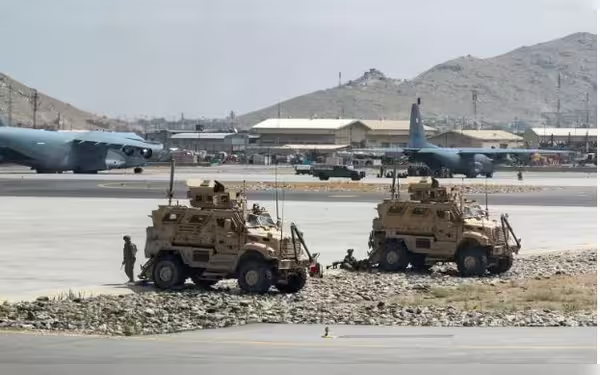Saturday, November 16, 2024 10:03 PM
Akhundzada Centralizes Military Control in Afghanistan
- Akhundzada issues decree centralizing military equipment control.
- Ministries stripped of authority over military distribution.
- Concerns rise over potential abuse of centralized power.
 Image Credits: menafn
Image Credits: menafnHibatullah Akhundzada centralizes military control in Afghanistan, raising concerns over potential misuse and power consolidation.
The recent developments in Afghanistan have raised eyebrows and sparked discussions regarding the control of military equipment within the caretaker government. Hibatullah Akhundzada, the supreme leader of the Afghan caretaker government, has taken a significant step by issuing a decree that centralizes the control of military assets. This move shifts the authority over the distribution of military equipment from the Ministry of Defence and the Ministry of Interior Affairs directly to his office.
According to reports, this decree aims to enhance security and ensure that military resources are safeguarded against misuse. Zabihullah Mujahid, a spokesman for the administration, emphasized that the intention behind this measure is to prevent arms and military assets from being used inappropriately. This is a crucial step, especially in a region where the misuse of military equipment can lead to severe consequences.
The decree consists of eight key points, which effectively strip the Ministry of Interior Affairs, the Ministry of Defence, and the Directorate of Intelligence of their authority over the distribution of weapons, ammunition, and other military equipment. Abdul Mateen Qani, the spokesman for the Ministry of Interior Affairs, clarified that all arms and military equipment stored in depots will now be distributed solely by the order of the leader of the Islamic Emirate.
This centralization of military control raises important questions about the future of security in Afghanistan. While the intention may be to prevent misuse, it also consolidates power in the hands of a single leader, which could lead to potential abuses of authority. The implications of this decision could be far-reaching, affecting not only the internal dynamics of the Afghan government but also its relations with neighboring countries and international stakeholders.
The recent decree by Hibatullah Akhundzada marks a pivotal moment in Afghanistan's governance. As the situation unfolds, it will be essential to monitor how this centralization of military control impacts the security landscape in the country. The balance between ensuring safety and maintaining checks on power will be crucial in determining the future stability of Afghanistan.













